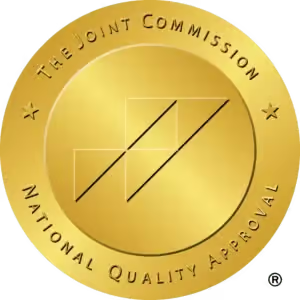Addiction Treatment for Benzodiazepines in New Hampshire
What Are Benzos?
Benzodiazepines, often called benzos, are central nervous system depressants that treat anxiety, panic, sleep, and seizures. Misuse or long use can cause dependence and addiction. They boost GABA, the brain’s calming chemical, raising the risk of benzodiazepine withdrawal without medical care.
Benzodiazepines List and Addiction Risks
Xanax (alprazolam):
Fast onset with high misuse risk; crushing extended-release can spike exposure.
Valium (diazepam):
Slower onset and longer action; long-term use still leads to dependence.
Klonopin (clonazepam):
Intermediate action for panic and seizures; misuse can develop quickly.
Ativan (lorazepam):
Short to intermediate onset; pill and injectable forms increase misuse risk.
Ambien (zolpidem):
Not a benzo but works similarly; dependence and risky use can still occur.
Why Choose Live Free Recovery for Benzo Rehab
24/7 Medical Supervision During Withdrawal
Round-the-clock monitoring with taper protocols reduces seizure risk, manages symptoms, and keeps you stable.
Specialized Dual Diagnosis Care
Integrated dual diagnosis treatment for anxiety, depression, trauma, and substance use lowers relapse risk.
Premier Addiction Recovery Facility
Our New Hampshire centers provide structured programs, clinical oversight, and calm settings for recovery.
Evidence-Based Therapeutic Approaches
Plans may include CBT, DBT skills, group therapy, family sessions, and relapse prevention tailored to your goals.
Recognizing Benzodiazepine Addiction Signs
Benzodiazepine addiction can build slowly. Understanding the warning signs can help you or your loved ones seek treatment before the condition worsens.

Physical
- Growing tolerance that needs higher doses
- Withdrawal symptoms when doses are missed
- Poor coordination with slowed reflexes and falls
- Persistent fatigue with heavy daytime drowsiness
- Slurred speech with blurred or double vision
- Short-term memory gaps and confusion
Behavioral
- Doctor shopping to secure extra or early refills
- Using benzodiazepines in ways not prescribed
- Struggling to function without daily medication
- Continuing use despite health or legal problems
- Pulling away from family, friends, or routines
- Spending heavily or hiding costs to obtain drugs
Psychological
- Anxiety when access to pills feels uncertain
- Rapid mood shifts with strong irritability
- Depressive symptoms or thoughts of self-harm
- Trouble thinking clearly or focusing on tasks
- Vivid dreams or disturbing sleep experiences
- Blackouts or gaps in memory after use
The Dangers of Benzodiazepine Abuse
Benzo abuse alters brain chemistry and harms judgment, breathing, and balance. Mixing with alcohol or opioids raises overdose risk. Supervised care prevents complications and supports recovery.
Benzo Withdrawal Symptoms and Risks
Severe anxiety, panic, and restlessness
Seizures that can be life-threatening
Hallucinations or severe confusion
Extreme light and sound sensitivity
Muscle spasms and painful tension
Irregular heartbeat or palpitations
Memory problems and poor concentration
Insomnia with vivid or disturbing dreams
Levels of Care for Benzo Addiction in New England
Our program treats physical dependence and the issues that drive use. You’ll move through levels of care based on medical needs, safety, support at home, and personal goals.
Medical Detox Programs
Receive a medically supervised taper with seizure precautions. Our team manages benzodiazepine withdrawal symptoms and prescriptions when appropriate.
Inpatient Benzo Rehabs
You’ll live in a structured setting with 24/7 support. Inpatient care includes individual therapy, groups, and CBT to address patterns linked to use.
Partial Hospitalization Program (PHP)
You’ll attend 4 to 6 hours of therapy on weekdays and sleep at home. PHP blends individual, group, and psychiatric care with daily structure.
Intensive Outpatient Program (IOP)
You’ll participate in several sessions each week while working or studying. IOP builds skills, accountability, and relapse prevention in real life.
Aftercare and Continuing Support
Recovery continues after formal treatment. You’ll leave with tools, contacts, and a plan that keeps support close.
Relapse Prevention Planning
Create a relapse plan with triggers, coping steps, and ongoing alumni and community support.
Sober Living Homes
Drug-free homes with structure, curfews, and peer support provide a safe bridge to independence.

Insurance and Costs
Most plans cover addiction care. Our team verifies benefits and explains costs in minutes.





Testimonials
Read More
Read More
Read More
Getting Started in New Hampshire
Your recovery can start today. Call (888) 527-1508 to speak with admissions and plan next steps. Live Free Recovery provides safe benzodiazepine addiction treatment with clinical expertise and steady support across New Hampshire.

FAQs
How long does benzodiazepine withdrawal last?
Acute symptoms can peak within 1 to 4 days and last 2 to 4 weeks. Some people have protracted symptoms that improve over months.
Can I detox from benzodiazepines at home?
No. Benzo withdrawal can cause seizures and severe complications. Detox should be medically supervised to keep you safe.
Will I need to take other medications during treatment?
Possibly. Clinicians may use medicines to ease symptoms and reduce seizure risk. We taper these carefully as you stabilize.
How is benzodiazepine addiction different from other drug addictions?
Benzo withdrawal carries a unique seizure risk, even with prescribed use. Many people develop dependence through long-term medical treatment.
Does insurance cover treatment?
Most plans cover addiction care. Our team can verify your benefits and explain coverage quickly.
What if I were prescribed benzodiazepines for a medical condition?
We treat addiction and the underlying condition together. You’ll explore safer, long-term options for anxiety, sleep, or seizures.
How long is treatment for benzodiazepine addiction?
Timelines vary. Detox often lasts 5 to 10 days; residential care can last 30 to 90 days. Outpatient support is more long-term.
Can I continue working during outpatient treatment?
Yes. IOP and outpatient schedules are designed to fit work, school, and family while keeping support consistent.
Our Behavioral Health Resources

Meet the Team
Get to know our experienced staff members who bring both clinical expertise and personal insight to the recovery journey.

Press Coverage
See published content about our innovative approach to treatment and our impact in New Hampshire communities.

Blog Articles
Access helpful tips and expert-backed mental health information. Explore insights into different conditions and advice for ongoing recovery.


